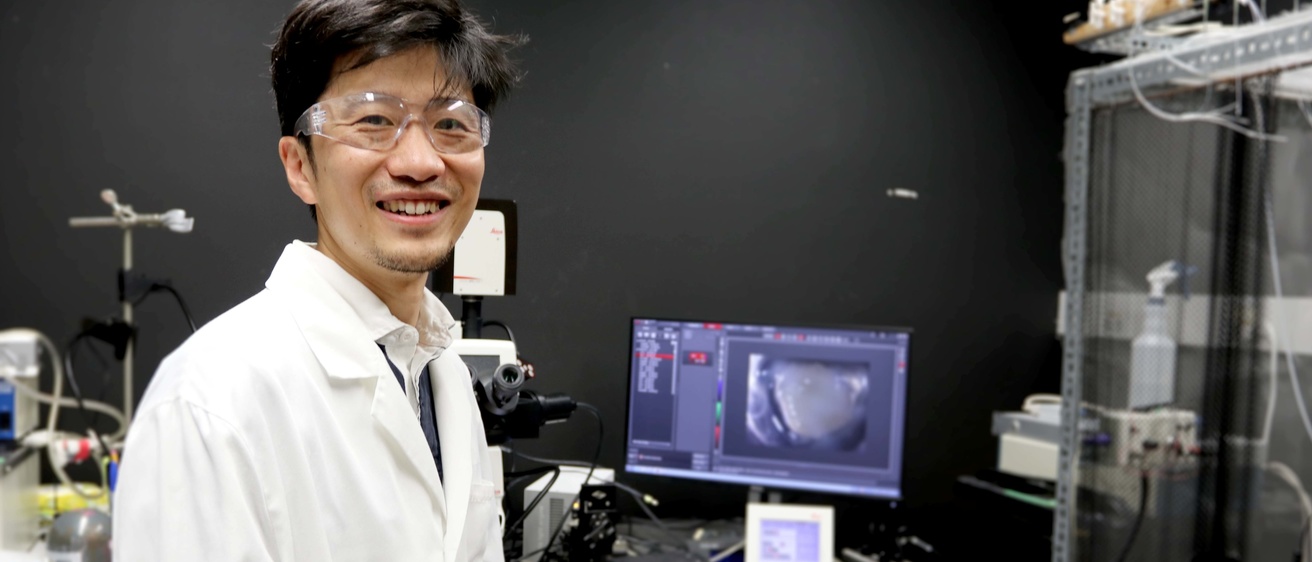A cutting-edge micro-engineering tool being developed at the University of Iowa College of Engineering could help scientists understand how lung diseases form and discover new therapies to combat them.
Yuliang Xie, assistant professor of biomedical engineering, calls the tool a “trachea-on-a-chip.” The chip would recreate a human’s airway environment to assess “mucociliary transport,” or MCT, of inhaled particles and bacteria. MCT is an innate self-clearing process that removes pathogens before they reach delicate lung tissues and is one of the key defense mechanisms in the respiratory system.
Scientists view investigation of particle MCT as critical to studying lung diseases such as asthma, cystic fibrosis, COPD, and lung cancer, as well as inventing new therapies. However, current methods fall short in recreating the physiology of the airway.
The National Heart, Lung, And Blood Institute of the National Institutes of Health recently awarded Xie a $214,583 grant to advance this area of research. A noncommitted amount of $186,544 is slotted for a potential second year of the research.
Through the grant, Xie proposes to deliver a trachea-on-a-chip that will provide a precisely controlled technical platform designed to address current shortcomings. Xie also plans to answer how the airway environment impacts the efficiency of MCT and create a new baseline for investigating a variety of lung diseases and applying for future research funding.
Learn more about Xie’s research by visiting the Pulmonary Microfluidic Laboratory website at https://xie.lab.uiowa.edu/.
